Martine’s as hungry as a horse.
So she opens the fridge.
And now she has a horse in her stomach.
Martine is not only the middle name of daughter Courtlynn, but apparently the title character in a series of books for children written in French by the Belgians Marcel Marlier and Gilbert Delahaye and edited by Casterman. The first one, Martine à la ferme (Martine at the farm), was published in 1954, followed by over 50 other books, which have been translated into many different languages.
Frenchy Amy says we have one of those books for Sorenne.
But friend of the blog Albert Amgar sent us this satirical one, Martine Likes Lasagna, and Amy translated his note, above.
Sometimes when I read about food issues or outbreaks, I begin to crave that food: horse sounds delicious.
I’m not alone.
According to the Globe and Mail, specialty meat suppliers in Britain have seen a surge in sales of horse burgers, with a scandal over the discovery of horsemeat in beef burgers and ready meals apparently piquing the curiosity of some shoppers.
Horsemeat, which has a sweet, gamey flavour, is cheaper and healthier than beef, containing half the fat, more Omega 3, and higher amounts of protein and iron.
Though none of Britain’s supermarkets sell horsemeat, it is available through specialty meat suppliers and is on the menu of a few notable restaurants, such  as L’escargot Bleu in Edinburgh.
as L’escargot Bleu in Edinburgh.
Exotic Meats has seen sales of horsemeat burgers, steaks and mince increase ten-fold since the scandal erupted on Jan. 15.
Exotic Meats’ horsemeat is sourced from either France, Spain or Italy and processed in Britain by an EU-approved plant.
Last week in response to the Findus scandal the firm posted on its website a recipe for horsemeat lasagne.
Berwickshire, Scotland-based Kezie Foods, which sells horsemeat products alongside elk, kangaroo and crocodile, has seen horsemeat sales double over the last three weeks, with strong demand from restaurants as well as individuals.
But consumers should get what they pay for; and food fraud is as reprehensive as eating ___________.
The UK Food Standards Agency and police today entered two meat premises, one in West Yorkshire and the other in West Wales.
The plant in West Yorkshire is Peter Boddy Licensed Slaughterhouse, Todmorden, West Yorkshire, and was believed to supply horse carcasses to Farmbox Meats Ltd, Llandre, Aberystwyth. The Agency and the police are looking into the circumstances through which meat products, purporting to be beef for kebabs and burgers, were sold when they were in fact horse.
The FSA has suspended operations at both these plants. Both West Yorkshire and Dyfed-Powys police have entered the premises with the FSA. The FSA has detained all meat found and seized paperwork, including customer lists from the two companies.
Andrew Rhodes, FSA Director of Operations, said: ‘I ordered an audit of all horse producing abattoirs in the UK after this issue first arose last month and I was shocked to uncover what appears to be a blatant misleading of consumers. I have suspended both plants immediately while our investigations continue.’
But weren’t there inspectors at those plants?
Woolworths, the largest retailer in Australia, got it right when they announced it would use DNA tests to verify what’s in their meat.
“While we have a robust traceability process in place, we will be testing Woolworths-branded ready meals and other meat lines for customers’ peace  of mind,” spokesman Benedict Brook told News Limited last night.
of mind,” spokesman Benedict Brook told News Limited last night.
“We expect them to all come back correct.”
Rival Coles said it had strong quality control – but would contact its suppliers just to “make sure.”
The New South Wales Food Authority noted measures the feds and state uses to keep horse meat out of human food.
- The Department of Agriculture, Fisheries and Forestry, which controls quarantine, advises Australia does not import any lasagna from Europe or beef patties from the UK or Ireland.
- There is a low risk of the EU substitution issue being experienced here, as Australia imports negligible amounts of raw meat.
- Horse meat is not processed for human consumption in NSW.
- Horse meat is processed for pet food at NSW knackeries. Strict laws are in place that requires knackeries to stain horse meat with a bright blue dye and to prevent it from entering the human food supply chain.
- The Authority conducts routine inspections of knackeries to assess compliance with the staining laws.
- The Authority conducts random species testing of meats sold at butchers in NSW.
- Food labelling laws in Australia require food to be correctly and truthfully labelled.
- There are significant penalty provisions under the Food Act 2003 for substitution and deceptive labelling of food.
 know what’s in the products they’re hawking, how are mere mortals and consumers to know?).
know what’s in the products they’re hawking, how are mere mortals and consumers to know?).

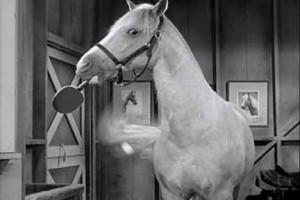
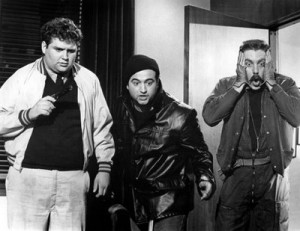



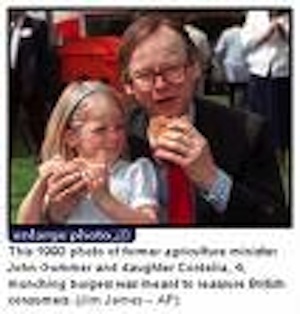
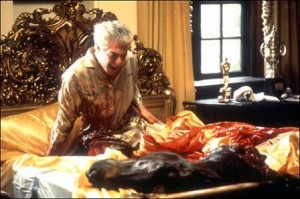
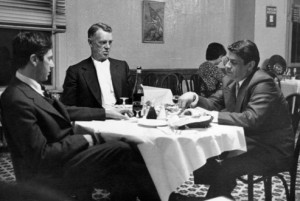


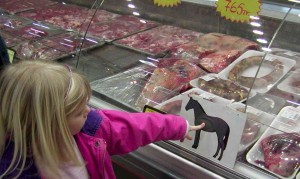
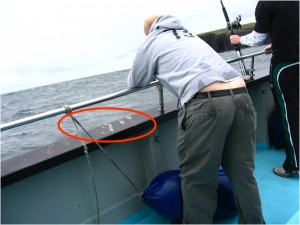
.jpg) name by Horace McCoy. It focuses on a disparate group of characters desperate to win a Depression-era dance marathon and the opportunistic emcee who urges them on to victory.
name by Horace McCoy. It focuses on a disparate group of characters desperate to win a Depression-era dance marathon and the opportunistic emcee who urges them on to victory..jpg)